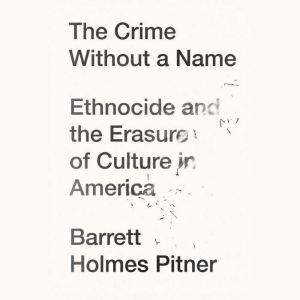

The Crime Without a Name
Ethnocide and the Erasure of Culture in America
Author: Barrett Holmes Pitner
Narrator: Barrett Holmes Pitner
Unabridged: 13 hr 27 min
Format: Digital Audiobook Download
Publisher: Random House Audio
Published: 10/12/2021
Synopsis
Can new language reshape our understanding of the past and expand the possibilities of the future? The Crime Without a Name follows Pitner’s journey to identify and remedy the linguistic void in how we discuss race and culture in the United States. Ethnocide, first coined in 1944 by Jewish exile Raphael Lemkin (who also coined the term “genocide”), describes the systemic erasure of a people’s ancestral culture. For Black Americans, who have endured this atrocity for generations, this erasure dates back to the transatlantic slave trade and reached new resonance in a post-Trump world.
Just as the concept of genocide radically reshaped our perception of human rights in the twentieth century, reframing discussions about race and culture in terms of ethnocide can change the way we understand our diverse and rapidly evolving racial and political climate in a time of increased visibility around police brutality and systemic racism. The Crime Without a Name traces the historical origins of ethnocide in the United States, examines the personal, lived consequences of existing within an ongoing erasure, and offers ways for listeners to combat and overcome our country’s ethnocidal foundation.

